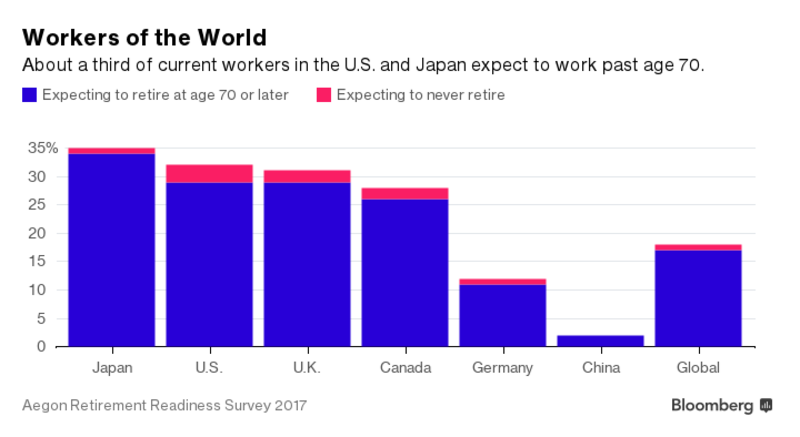When surveyed, 61 percent of American retirees say they retired sooner than they’d planned. That’s more than anywhere else in the world, according to the 2017 Aegon Retirement Readiness Survey, of 16,000 people in 15 countries. Globally, 39 percent of retirees say they quit working early. Even part-time work may be unrealistic. EBRI finds that just 29 percent of retirees say they worked for pay at some point in their retirement.
And employers might not be interested in you.
“Although age discrimination has been illegal for 50 years, employers continue to see older workers as a liability,” said Ruth Milkman, a sociology professor at the City University of New York. Seniors who want to extend a full-time career may be forced to take temporary jobs, for example, or work as independent contractors. “Frozen out of standard employment, older workers turn to more precarious (and less well-compensated) employment,” Milkman said at a conference last month.
Rather than retire, older workers sometimes switch from traditional jobs to self-employment, according to a study released last month by the National Bureau of Economic Research that analyzed U.S. tax and survey data. In the process, they often switch occupations as well. They pay an economic price for going solo, the study finds, with average annual earnings dropping by $18,160 for older workers.
The irony is, those seniors who find it easiest to keep working—healthy, well-educated, and highly skilled people who enjoy their jobs—tend to be the least likely to need the money. Other older Americans, faced with few good job choices, often just decide to retire and and live frugally off Social Security and savings.
The share of older people in the workforce is higher than at any point since before the creation of Medicare. Even more older Americans might be out there working, though, if they were healthier and had better job prospects.
This article was provided by Bloomberg News.

Health problems may force you to quit. While longevity has generally improved along with medical care, especially for the wealthy and well educated, more recent trends in the U.S. show many Americans' health deteriorating.








